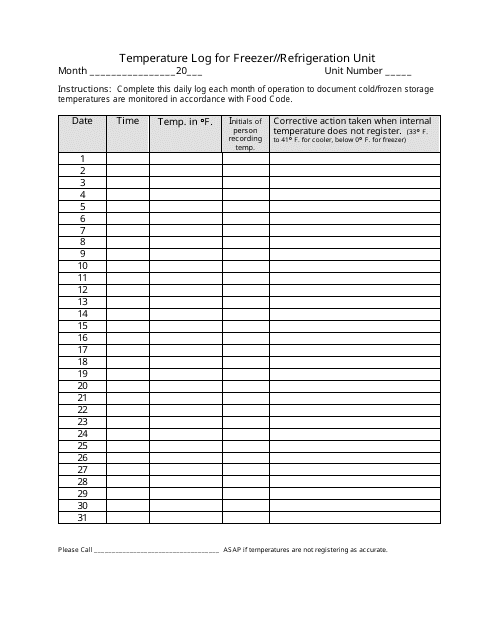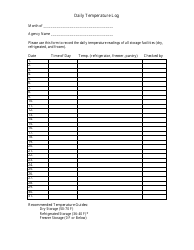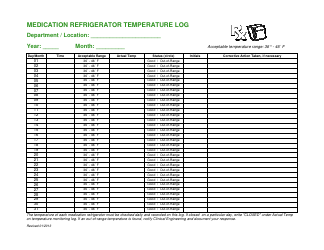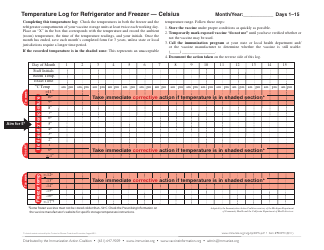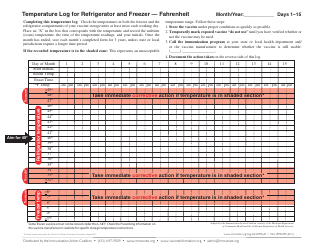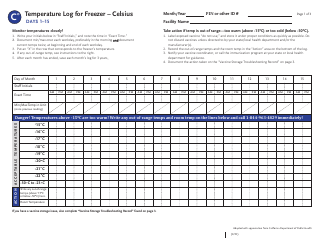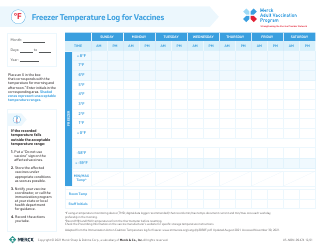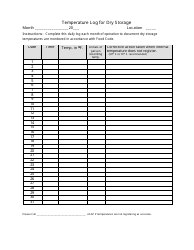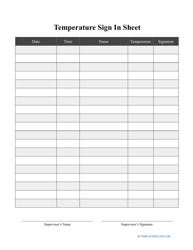Freezer / Refrigeration Unit Temperature Log Sheet Template
The Freezer/Refrigeration Unit Temperature Log Sheet Template is used to record the temperature readings of a freezer or refrigeration unit. It helps monitor and maintain the required temperature for storing food or other perishable items.
The person responsible for maintaining the freezer/refrigeration unit temperature log sheet template is typically the staff member in charge of food safety or the person appointed by the organization to monitor and record the temperatures.
FAQ
Q: What is a freezer/refrigeration unit temperature log sheet?
A: A freezer/refrigeration unit temperature log sheet is a document used to record temperature readings of a freezer or refrigerator.
Q: Why is a temperature log sheet important?
A: A temperature log sheet is important for monitoring the temperature of a freezer or refrigerator to ensure food safety and compliance with health regulations.
Q: What should be recorded on a temperature log sheet?
A: On a temperature log sheet, you should record the date, time, temperature readings, and any relevant notes or observations.
Q: How often should temperature readings be recorded?
A: Temperature readings should be recorded at regular intervals, typically every 2-4 hours, depending on the specific requirements or guidelines of your industry or organization.
Q: Who is responsible for recording temperature readings?
A: The person in charge of the freezer or refrigerator, such as a manager or designated staff member, is responsible for recording temperature readings.
Q: What should I do if the temperature readings are outside the recommended range?
A: If the temperature readings are outside the recommended range, you should take immediate action by adjusting the temperature controls, contacting maintenance or a refrigeration technician, and evaluating the potential impact on food safety.
Q: How long should temperature log sheets be kept?
A: Temperature log sheets should be kept for a certain period of time, typically between 1-3 years, depending on local health department regulations and organizational policies.
